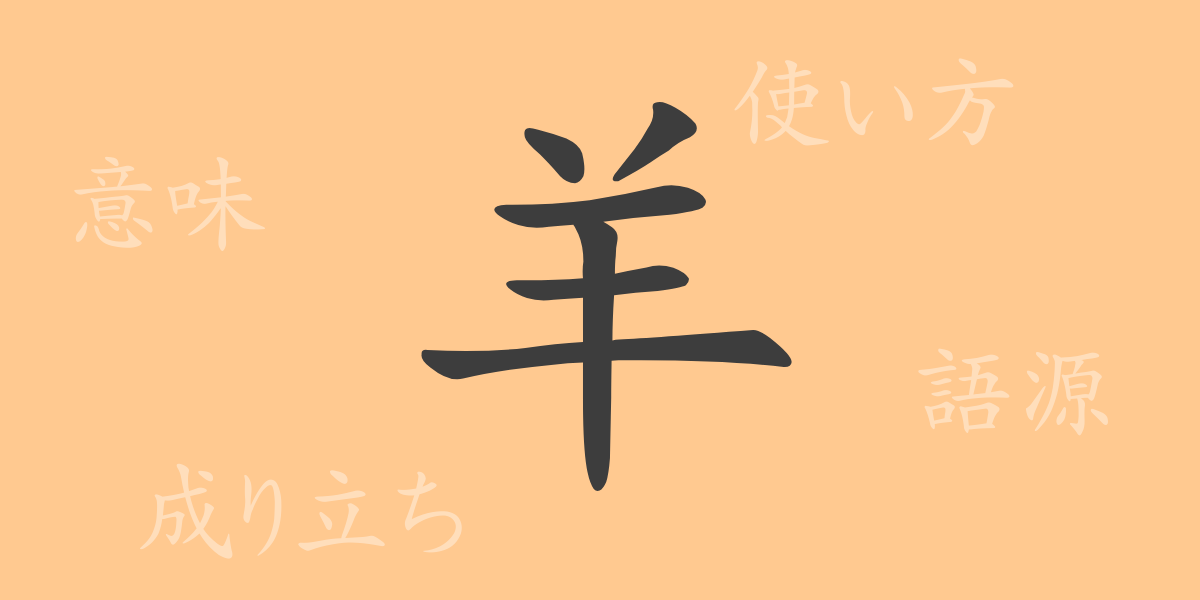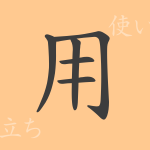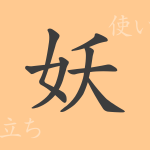Kanji (かんじ), deeply rooted in Japanese culture, hold meanings that go beyond mere characters. Each kanji carries its own unique history and story, playing a crucial role in the daily lives of Japanese people. “羊” (よう, Yo), is one such kanji, symbolizing an animal that has been closely tied to human life since ancient times. This article delves into the origin, meaning, usage, pronunciation, stroke count, and radical of the kanji “羊” (よう, Yo), as well as idioms and phrases that incorporate it, uncovering its fascinating aspects.
Origin of 羊 (よう, Yo)
The kanji “羊” (よう, Yo) developed as a pictograph representing a sheep in ancient China. Its shape is derived from the side view of a sheep’s head, featuring distinct horns, ears, and facial lines. Over time, this shape became more abstract, evolving into the current form of “羊” (よう, Yo). Sheep, domesticated since ancient times and providers of food and clothing, have been significant in agrarian cultures.
Meaning and Usage of 羊 (よう, Yo)
The most basic meaning of the kanji “羊” (よう, Yo) is the animal “sheep.” However, it extends beyond this literal sense, appearing in various idioms and phrases with metaphorical and symbolic meanings. For instance, “羊頭狗肉” (ようとうくにく, Youtoukuniku) is used to describe a discrepancy between appearance and reality. The gentle and docile nature of sheep also lends the kanji to represent peace and tranquility.
Pronunciation, Stroke Count, and Radical of 羊 (よう, Yo)
The kanji “羊” (よう, Yo) has multiple readings.
- Pronunciation: On’yomi (音読み) as “ヨウ” (よう, Yo), Kun’yomi (訓読み) as “ひつじ” (ひつじ, Hitsuji)
- Stroke Count: 6 strokes in total
- Radical: 羊部 (ひつじぶ, Hitsuji-bu)
Idioms, Phrases, and Proverbs Using 羊 (よう, Yo) and Their Meanings
Idioms and phrases that include the kanji “羊” (よう, Yo) each have unique meanings, enriching the Japanese language’s expressive range. Here are a few examples:
- 羊頭狗肉(ようとうくにく, Youtoukuniku) – Something that looks good on the outside but is disappointing inside.
- 狼に育てられた羊(おおかみにそだてられたひつじ, Ookami ni sodaterareta hitsuji) – A person whose character changes due to their environment.
- 羊の皮をかぶった狼(ひつじのかわをかぶったおおかみ, Hitsuji no kawa wo kabutta ookami) – A person who appears gentle but is actually ferocious.
Summary of 羊 (よう, Yo)
The kanji “羊” (よう, Yo), with its simple yet familiar form, has seamlessly integrated into our lives through history. Beyond the image of the animal sheep, it plays a significant role in various idioms and phrases, broadening the expressive scope of the Japanese language. We hope this article has helped you appreciate the multifaceted charm of the kanji “羊” (よう, Yo).

























